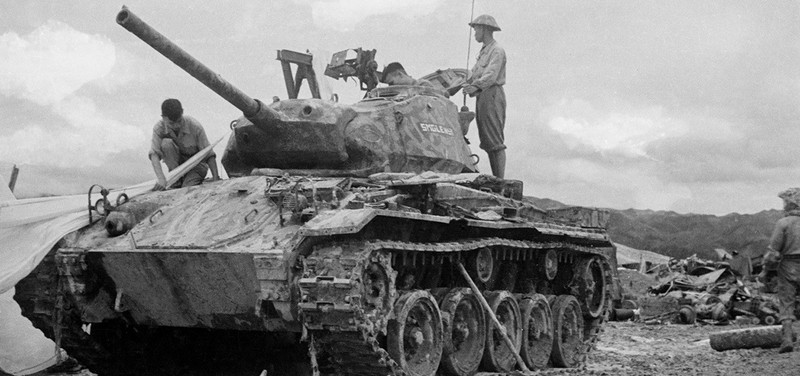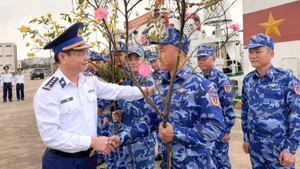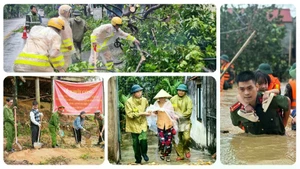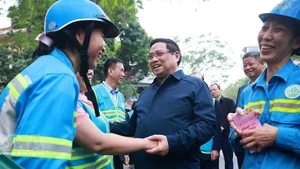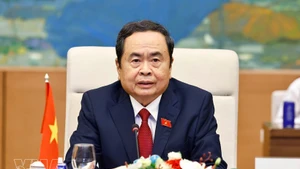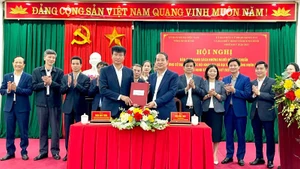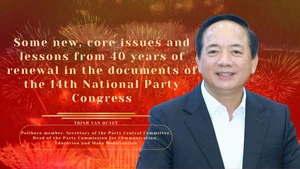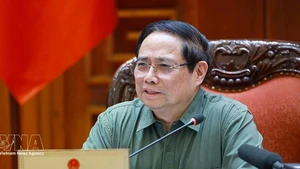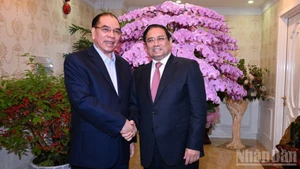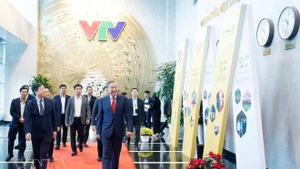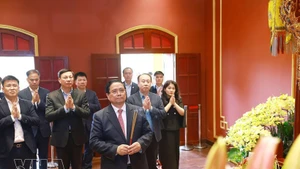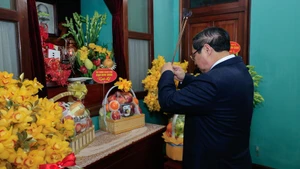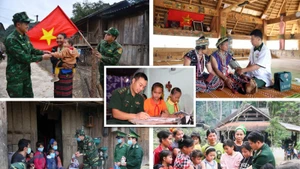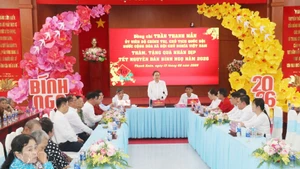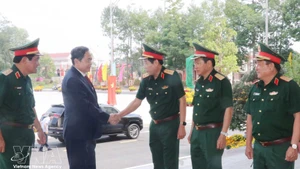Meanwhile, one of two Dakota transport aircrafts, which support military operation to the French in Dien Bien Phu, was hit by our artillery while landing on the airport runway, the other was luckily safe.
On March 19, 1954, General Vo Nguyen Giap sent a report to President Ho Chi Minh, comrade Truong Chinh and other comrades in the Politburo, in which the General assessed that our army's first battle was deployed favourably. The French suffered a very serious defeat, losing both troops and its area of control in the northern region. The airfield was almost completely under our control, with many casualties and heavy air force losses.
On the Vietnamese side, after 2 - 3 days of consolidation, the force’s capacity was almost fully intact, gaining more experience, excitement, and trust in the guidelines. We also took over some weapons and ammunition from the enemy.
However, after a period of time fighting on a battlefield covering over 100 kilometres, the combat units’ health condition deteriorated because they had to clean up the battlefield after completing their mission, along with a lack of workers and poor nutrition.
The report assessed that stage 2 of the second phase would be the time to set up the battlefield to lay siege from all sides in order to achieve specific goals. First, preventing the enemy from reinforcing its strength. Second, making it impossible for the enemy to airdrop supplies. Third, making it difficult for the enemy's air force and artillery to operate. Fourth, increasingly all our 81, 82mm-and-above mortars’ ability to threaten the enemy, no less powerful than heavy artillery.
From these observations, General Vo Nguyen Giap assessed the enemy and Vietnamese forces, and proposed solutions to President Ho Chi Minh, comrade Truong Chinh, and members of the Politburo and the Party Central Committee: mobilise available personnel and material resources from the rear to support the front line, and connect other battlefields in the country with the Dien Bien Phu battlefield, creating motivation for our army and people to soon win the Dien Bien Phu Campaign.
